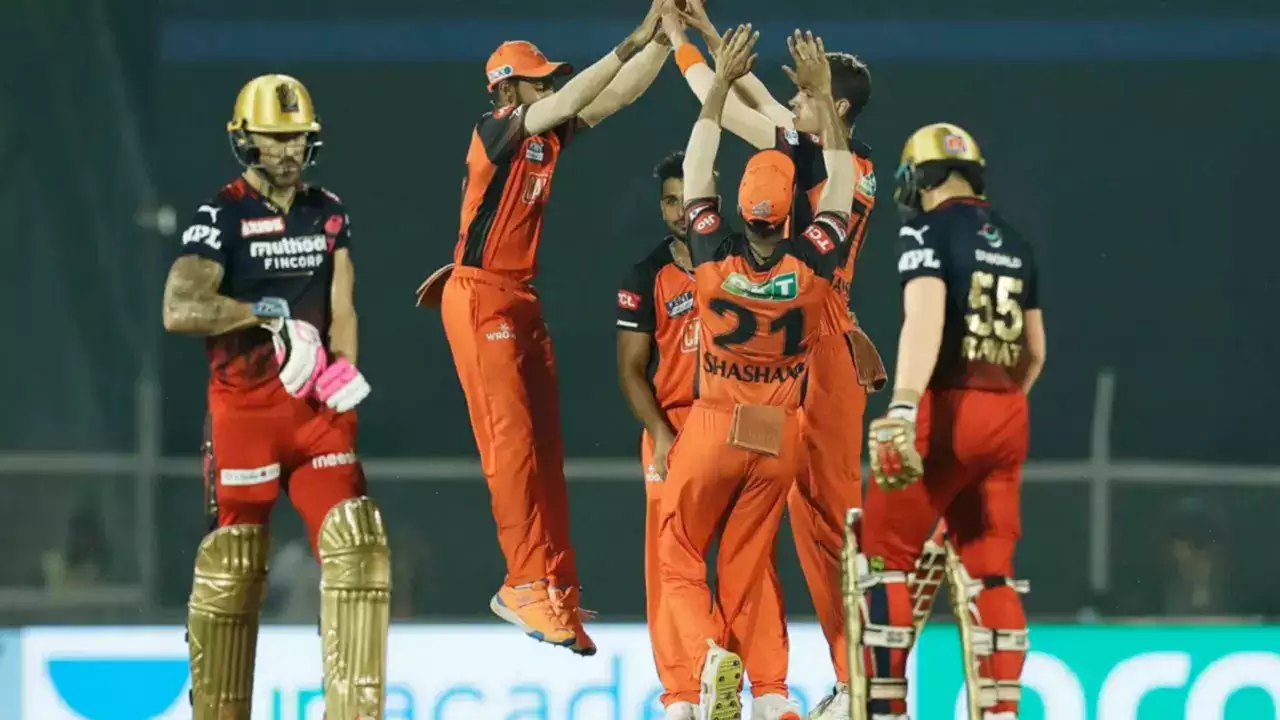The wheels of justice grind exceedingly slowly in India. They also, not infrequently, take a wrong turn or hit a cul-de-sac. Take the case of Rajesh and Nupur Talwar, who spent four years in jail on the charge of murdering their daughter. They were released this week after the Allahabad High Court threw out the case against them. But the Talwars are not alone in their predicament. Many others have spent more years in jail, on charges that have proven to have little, or no substance; their lives and those of their loved ones devastated in the process. Gargi Gupta and Pooja Bhula bring you testimonies of two such individuals
'I hadn't seen stars in 14 years'
Name: Md AAmir Khan
Age: 37 years
Place: Delhi
Arrested on: February 27, 1998 (according to FIR, from near his old Delhi residence for possession of explosives and live cartridges)
Released: January 2012
Charge: Being the mastermind of serial bomb blasts in north India in 1996 -1997; he had 19 cases filed against him under Section 121 IPC (waging war against the government), 121 A (conspiracy to wage war against the government). All of them were dismissed by the courts for lack of evidence.
I don't understand where to begin (my story). When I was 'kidnapped', I was in Class 11. I won't use the word 'arrested'; I was picked up from the road. That does not fit the description of arrest under Indian law.
I had a family, my parents... We had a small, toy business in old Delhi where we lived. We were happy; I had dreams. I wanted to be a pilot. All that was lost when I was kidnapped. I came out to find that the world around me had completely changed. My father was not there; he was dead. My mother was a living corpse — she'd suffered a brain haemorrhage and was paralysed. On reaching home, I embraced her, but she couldn't say a word. She died a year-and-a-half ago, and I have the consolation of having cared for her for four years, but I never again heard her call me beta. The other thing I did on getting home was to go to the terrace and see the stars. I hadn't seen stars in 14 years; we would be let out for a bit, but only during the day.
I have two sisters who are far older than me — the younger one of the two is now in Delhi, and has supported me. The other one (who is married and lives in Pakistan), I have not spoken to for the past 20 years. I am told often that my sister wants to talk to me, but I am afraid. One never knows which strings will be connected and a rope will be made into a snake.
My education remained incomplete. In jail, there was an IGNOU centre, and I completed the BPP course (equivalent of a Class 12 exam). Then I enrolled for a BA. I was in the second year, in 2000, when the jailer had me beaten up by inmates. I was put in a dungeon, in solitary confinement for 24 hours. After that, I could not continue my studies. I have tried to get back to it, but my health has not allowed me to continue. I have trouble with my memory — even now, I can't remember names and numbers very well. It was worse earlier — in the course of this interview itself I might have asked you a few times what we were speak-ing about.
People think that after you are released, the earlier chapter of your life is over. When I was watching the Talwars' release on TV, I could see the excitement of the media and the happiness of their families. Their reactions are natural, but the Talwars have many new challenges before them. I know this because I have faced them. For a long time after my release, I had the feeling that I'd escaped from one jail and got into another. A bigger one. In those early days, when I got up in the morning, I'd feel that I was still in jail, that I had to go for the roll call. Even at home, my routine was to come back before sunset (as was the case in jail). Having lived in a place for 14 years, it takes time to get over it. Even now, I sometimes dream of the torture and the prison. I cry and scream in my sleep. Sometimes, I still feel that I am in the dock in a courtroom, or inside the jail, surrounded by khakhi uniforms. I still get scared on seeing the khakhi uniform. Such feelings used to occur very frequently earlier; five years on, I have gained some control over myself. During winters and monsoons, my bones and muscles ache. The wounds have healed, but the memories have yet to.
I have been lucky in many ways – I got justice, although late; I had good lawyers; after my release the media has written about me extensively; and I got a lot of help from civil society. Soon after my release, I was associated with the NGO Anhad; now I work with Harsh Mander in Aman Biradari on homeless issues and legal aid.
In December 2015, the National Human Rights Commission (NHRC) sent a suo motu notice to the Delhi government asking why a compensation of Rs 5 lakh should not be paid to me. It came a little late, undoubtedly, as I had been released in 2012, but I welcomed it.Then, in late 2016, the Commission issued an order to the state government to pay me Rs 5 lakh as financial relief. But it's nearly a year now, and there has been no action on the order.
The question is not of Rs 5 lakh or Rs 50 lakh or Rs 5 crore — no financial assistance can bring back my 14 years, the difficulties that I and my family faced, the death of my dreams, or the loss of those precious years when I would have made my future. I believe, the responsibility to compensate me for that loss or rehabilitate me is the government's. Yes, the money would have helped me in my new life. But more than money, what I need is a job that gives me dignity so that I can take my life forward again and be a good citizen of this country. In 2013, I met the president in this regard, and in 2014, the Delhi chief minister. But other than assurances, I have not received much. I still live in hope.
(Khan has been working with Aman Biradari for the last three years)
'In prison, you lose all fundamental rights'
Name: Gopal Shetye
Age: 40 years
Place: Mumbai
Arrested on: July 29, 2009 as per official records, but as per Shetye it happened on July 26, 2009
Convicted on: May 31, 2010
Acquitted on: June 10, 2015, three months after he completed his entire jail term
Charge: Rape of Priti Ashok Dethe, on June 19, 2009, who was sleeping on Ghatkopar railway station. He was imprisoned for the alleged crime for seven years under Section 376 of the Indian Penal Code, but was acquitted belatedly as the court found that the authorities had not substantially determined whether Shetye had actually committed the crime.
As a 5th grader, I ran to Mumbai with dreams to come up in life. Doing odd, part time jobs, I self-funded my education till SSC. Realising that besides pay, the hotel industry also provides khaana-peena, I began pursuing a career in it, in earnest rising from a restaurant in Ulhasnagar, where I stayed, to various A Grade and star hotels in Mumbai. At Leela Penta (now, Leela Kempenski), I drew a salary of Rs.48,000 as briefing in charge. I even have a Hotel Management diploma from a private institute. But married at 19 and with two kids by 30, one needs more money. So I undertook a project with Gujarat government. As my income improved, my aspirations soared too and I bought land to build a bigger family house in our village taking a Rs.12 lakh loan. Our future had just begun to shine.
Then suddenly on the fateful day of July 26, 2009, within a week of my return to Mumbai, cops called me out while I was on job at a restaurant in Ghatkopar. They put me in the Kurla railway police lockup and wouldn't even tell me the reason. July 29, which official records claim was my arrest date, in reality, was my fourth day in lockup. It was also the day they finally told me I was accused of raping some girl was sleeping at Ghatkopar station. Going against law, they brought her to the police station to see me before the identification parade in court. The mentally ill girl couldn't recognise me, but the investigating officer pointed to the CCTV footage – too dark to determine anyone's face – suggesting I was that bald fellow. They picked me up simply because she'd said the rapist was Gopi and my name Gopal sounds similar. They did the medical test only after six days and didn't even present it in court, sending me directly to Byculla for jail custody. Eight days later, I was made to sleep naked for two nights in the Kurla lockup and two constables told other inmates "hit him, he's a rapist". The way my house was searched next day, I thought, only happened in movies – cops asked my wife and daughters (then age six and seven) to stand aside in our rented place at Amrutnagar in Ghatkopar and went around throwing our vessels, documents and everything, leaving the house in a pathetic state. My kids started crying.
Life for a rape-accused, even in jail, is terrible. It's the most dangerous allegation. I was made to sleep near the loo. Anyone would come and hit me, kick me, as they pleased. The food was so bad, I couldn't eat it and soon contracted tubercolosis. I was eventually hospitalised at JJ Hospital because I began spewing blood. Whenever my family would come to see me, cops would ask my wife for Rs. 500, subject her to dirty insults. The horrible way woman are looked at...I asked my wife to stop visiting. In all the months during my 10-month-trial – six of which were spent in Arthur road jail – I didn't risk raising my voice against all the mistreatment as I was hopeful of acquittal and fearful of consequences. Complain about the food and you'll be tied to a tower, beaten up in front of everyone and put in solitary confinement. In prison, you lose all your fundamental rights.
But there was no acquittal. On May 31, 2010, I was convicted. The prosecutor assigned to me was a sarkari fellow who didn't appear for many key hearings during my trial and with my meagre savings, I couldn't hire a lawyer.
Yet, I immediately appealed against in the High Court. One thing, I had learnt by now was when they moved me to Nashik and given a uniform and billa (badge), I must act like a shanna (smart and strong person) so no one touches me. If you're scared, you'll be shown no mercy. So I hit two ward boys and a cop on my very first day. Also, the richer you are, the less people will mess with you. No one sent me money orders, but to look like I belonged to wealth, I always dressed crisp by ironing my clothes. Having licked the jail manual start to finish, I earned some money by helping other inmates with paper work – unlike others, rape convicts aren't allowed to work – and orchestered protests to demand our rights. The strategy worked. No one bothered me here, in fact, I was given a separate room.
On the home front, with no money coming in, my wife was finding it tough to maintain pay rent and the kids' fees. She'd stopped working as birth of our second one had left her very weak. I had to ask her to put the kids in an orphanage. A few months later, she expressed fears that she'll "have to do something wrong to survive at this rate". Feeling her pain, I asked her to remarry. I never meant it, but months later she actually did. I got the news from her post card. We'd had a love marriage, I was shattered. I had lost everything. Overdosing on CPM sleeping tablets, I attempted suicide twice in 2011 and also began doing drugs.
By 2012, I somehow emerged from depression and began pursuing a distance learning LLB program. I filed several Right To Information pleas to gather evidence for my case. During the trial, the CCTV footage and medical tests hadn't been produced in court. Besides being wrongfully kept in custody for three days (instead of 24 hours) before I was presented in court, no further investigation was undertaken despite my informing that someone else had committed the crime. I sent all this evidence to the court, the CM and the PM.
Tragedy struck again. In 2013, when I finally found courage to inform my father about the wrongful conviction, he died of shock on reading my letter. I was denied bail to go for the funeral rites, something even hardened criminals are allowed.
No government cares about prisoners. Prisons are full beyond capacity. There's no place to lie down...you have to rest your head on your elbow. Rotis made of bhusa (husk) give inmates skin problems like itchiness; the grain is infested by insects. And cheated of rightful food and nutrition, inmates end up purchasing supplies from the canteen. I can go on...I gathered the inmates for protests and got a lot of things changed. Due to my good behaviour and contribution, the superintendent reduced my term by a year. By the time I was released in 2015, the food had improved, we had fans, 40 television sets and a landline installed.
My reality, though, remained gloomy. My name hadn't been cleared and my family life was in shambles. Who would host a rapist? With nowhere to go, I would sleep on the pavement outside the High Court or CST station after my release and do jobs that street-dwellers undertake to be able to continue fighting my case. Acquittal by High Court (on June 10, 2015) came three months after I had already completed the jail term. I wanted justice. I wanted a house and compensation to give my girls a good life. My 14-day andolan at Azad Maidan and 18-day protest at Jantar Mantar were widely covered. Only after my acquittal was telecasted on national television did I go to village to meet my mother. The CM's word that he'll grant me what the law says, remains just that even after two years.
A lot of NGOs approached me at Azad maidan, but I joined OJHA (Organisation of Jurists for Humanity Awareness), many of whose lawyers themselves have faced grave injustice. They encouraged me to file a writ petition demanding 200-crore compensation. When Justice PB Sawant can file for 100-crore defamation against Times Now – for his photo being mistakenly aired for 15 seconds in place of Provident Fund case accused Justice PK Samanta – is 200 crores too much to ask for seven years of imprisonment and living with tag of a rapist?
People had given me loans, believing I'll get my due, but the High Court quashed the petition. There's no recourse for the poor. I got fired from two jobs that were playing me Rs. 22,000 because I had to take leaves for my case. Then a month ago, I started a vada pav stall outside the High Court, but that too has been demolished by the BMC for being 'illegal'. All stalls here are illegal, but the law doesn't apply to those earning lakhs and paying hefty hafta. Sometimes, I feel I should stop fighting and just rebuild my life. But I won't be at peace till the real culprit is walking free and some law is formed so that no one else meets Gopal Shetye's fate.
(Gopal Shetye has joined NGO OJHA that fights for innocent convicts. Awaiting his rehabilitation hearing, he laments that it's been 10 years since his arrest, but his family still can't celebrate Diwali)
![submenu-img]() US imposes sanctions on Chinese, Belarus firms for providing ballistic missile tech to Pakistan
US imposes sanctions on Chinese, Belarus firms for providing ballistic missile tech to Pakistan![submenu-img]() 'Don't have any comment': White House mum on reports of Israeli strikes in Iran
'Don't have any comment': White House mum on reports of Israeli strikes in Iran![submenu-img]() Yes Bank co-founder Rana Kapoor gets bail after four years in bank fraud case
Yes Bank co-founder Rana Kapoor gets bail after four years in bank fraud case![submenu-img]() Barmer Lok Sabha Polls 2024: Check key candidates, date of voting and other important details
Barmer Lok Sabha Polls 2024: Check key candidates, date of voting and other important details![submenu-img]() This star once lived in garage, earned Rs 51 as first salary; now charges Rs 5 crore per film, is worth Rs 335 crore
This star once lived in garage, earned Rs 51 as first salary; now charges Rs 5 crore per film, is worth Rs 335 crore![submenu-img]() DNA Verified: Is CAA an anti-Muslim law? Centre terms news report as 'misleading'
DNA Verified: Is CAA an anti-Muslim law? Centre terms news report as 'misleading'![submenu-img]() DNA Verified: Lok Sabha Elections 2024 to be held on April 19? Know truth behind viral message
DNA Verified: Lok Sabha Elections 2024 to be held on April 19? Know truth behind viral message![submenu-img]() DNA Verified: Modi govt giving students free laptops under 'One Student One Laptop' scheme? Know truth here
DNA Verified: Modi govt giving students free laptops under 'One Student One Laptop' scheme? Know truth here![submenu-img]() DNA Verified: Shah Rukh Khan denies reports of his role in release of India's naval officers from Qatar
DNA Verified: Shah Rukh Khan denies reports of his role in release of India's naval officers from Qatar![submenu-img]() DNA Verified: Is govt providing Rs 1.6 lakh benefit to girls under PM Ladli Laxmi Yojana? Know truth
DNA Verified: Is govt providing Rs 1.6 lakh benefit to girls under PM Ladli Laxmi Yojana? Know truth![submenu-img]() Remember Ali Haji? Aamir Khan, Kajol's son in Fanaa, who is now director, writer; here's how charming he looks now
Remember Ali Haji? Aamir Khan, Kajol's son in Fanaa, who is now director, writer; here's how charming he looks now![submenu-img]() Remember Sana Saeed? SRK's daughter in Kuch Kuch Hota Hai, here's how she looks after 26 years, she's dating..
Remember Sana Saeed? SRK's daughter in Kuch Kuch Hota Hai, here's how she looks after 26 years, she's dating..![submenu-img]() In pics: Rajinikanth, Kamal Haasan, Mani Ratnam, Suriya attend S Shankar's daughter Aishwarya's star-studded wedding
In pics: Rajinikanth, Kamal Haasan, Mani Ratnam, Suriya attend S Shankar's daughter Aishwarya's star-studded wedding![submenu-img]() In pics: Sanya Malhotra attends opening of school for neurodivergent individuals to mark World Autism Month
In pics: Sanya Malhotra attends opening of school for neurodivergent individuals to mark World Autism Month![submenu-img]() Remember Jibraan Khan? Shah Rukh's son in Kabhi Khushi Kabhie Gham, who worked in Brahmastra; here’s how he looks now
Remember Jibraan Khan? Shah Rukh's son in Kabhi Khushi Kabhie Gham, who worked in Brahmastra; here’s how he looks now![submenu-img]() DNA Explainer: What is cloud seeding which is blamed for wreaking havoc in Dubai?
DNA Explainer: What is cloud seeding which is blamed for wreaking havoc in Dubai?![submenu-img]() DNA Explainer: What is Israel's Arrow-3 defence system used to intercept Iran's missile attack?
DNA Explainer: What is Israel's Arrow-3 defence system used to intercept Iran's missile attack?![submenu-img]() DNA Explainer: How Iranian projectiles failed to breach iron-clad Israeli air defence
DNA Explainer: How Iranian projectiles failed to breach iron-clad Israeli air defence![submenu-img]() DNA Explainer: What is India's stand amid Iran-Israel conflict?
DNA Explainer: What is India's stand amid Iran-Israel conflict?![submenu-img]() DNA Explainer: Why Iran attacked Israel with hundreds of drones, missiles
DNA Explainer: Why Iran attacked Israel with hundreds of drones, missiles![submenu-img]() This star once lived in garage, earned Rs 51 as first salary; now charges Rs 5 crore per film, is worth Rs 335 crore
This star once lived in garage, earned Rs 51 as first salary; now charges Rs 5 crore per film, is worth Rs 335 crore![submenu-img]() Meet actress, who worked as cook for free food, mopped floors, one Instagram post changed her life, is now worth…
Meet actress, who worked as cook for free food, mopped floors, one Instagram post changed her life, is now worth… ![submenu-img]() UP man arrested for booking cab from Salman Khan's house under Lawrence Bishnoi's name
UP man arrested for booking cab from Salman Khan's house under Lawrence Bishnoi's name ![submenu-img]() 'Justice milega': Ankita Lokhande talks about Sushant Singh Rajput, reveals she's still connected with his family
'Justice milega': Ankita Lokhande talks about Sushant Singh Rajput, reveals she's still connected with his family![submenu-img]() Rajkummar Rao reacts to plastic surgery rumours, admits he got fillers: 'If something gives me confidence...'
Rajkummar Rao reacts to plastic surgery rumours, admits he got fillers: 'If something gives me confidence...'![submenu-img]() IPL 2024: KL Rahul, Quinton de Kock star in Lucknow Super Giants' dominating 8-wicket win over Chennai Super Kings
IPL 2024: KL Rahul, Quinton de Kock star in Lucknow Super Giants' dominating 8-wicket win over Chennai Super Kings![submenu-img]() DC vs SRH, IPL 2024: Predicted playing XI, live streaming details, weather and pitch report
DC vs SRH, IPL 2024: Predicted playing XI, live streaming details, weather and pitch report![submenu-img]() Watch: Virat Kohli's cheeky 'your wife' remark to Dinesh Karthik leaves RCB teammates in splits
Watch: Virat Kohli's cheeky 'your wife' remark to Dinesh Karthik leaves RCB teammates in splits ![submenu-img]() DC vs SRH IPL 2024 Dream11 prediction: Fantasy cricket tips for Delhi Capitals vs Sunrisers Hyderabad
DC vs SRH IPL 2024 Dream11 prediction: Fantasy cricket tips for Delhi Capitals vs Sunrisers Hyderabad![submenu-img]() 'Kohli said it's not an option, just...': KL Rahul recalls his IPL debut for RCB in 2013
'Kohli said it's not an option, just...': KL Rahul recalls his IPL debut for RCB in 2013![submenu-img]() Canada's biggest heist: Two Indian-origin men among six arrested for Rs 1300 crore cash, gold theft
Canada's biggest heist: Two Indian-origin men among six arrested for Rs 1300 crore cash, gold theft![submenu-img]() Donuru Ananya Reddy, who secured AIR 3 in UPSC CSE 2023, calls Virat Kohli her inspiration, says…
Donuru Ananya Reddy, who secured AIR 3 in UPSC CSE 2023, calls Virat Kohli her inspiration, says…![submenu-img]() Nestle getting children addicted to sugar, Cerelac contains 3 grams of sugar per serving in India but not in…
Nestle getting children addicted to sugar, Cerelac contains 3 grams of sugar per serving in India but not in…![submenu-img]() Viral video: Woman enters crowded Delhi bus wearing bikini, makes obscene gesture at passenger, watch
Viral video: Woman enters crowded Delhi bus wearing bikini, makes obscene gesture at passenger, watch![submenu-img]() This Swiss Alps wedding outshine Mukesh Ambani's son Anant Ambani's Jamnagar pre-wedding gala
This Swiss Alps wedding outshine Mukesh Ambani's son Anant Ambani's Jamnagar pre-wedding gala








































)




)
)
)
)
)
)